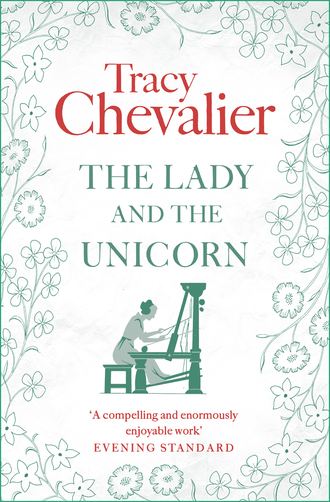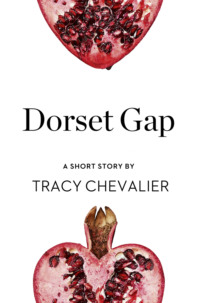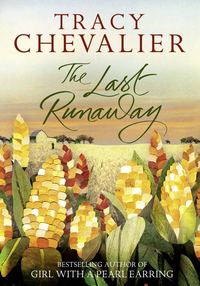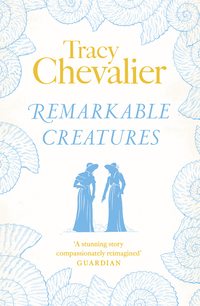
Полная версия
The Lady and the Unicorn
‘Not a parakeet,’ I said. ‘Surely you don’t think of me as a squawker and an imitator.’
‘My parakeets make no noise. But anyway, you are an artist, non? Isn’t that what you do – imitate life?’
‘I make things more beautiful than they are – though there are some things, my girl, that cannot be improved upon with paint.’ I stepped around her and stood three steps above. I wanted to see if she would come to me.
She did. Her eyes remained clear and wide, but her mouth was twisted into a knowing smile. With her tongue she moved the clove from one cheek to the other.
I will have you, I thought. I will.
‘Perhaps you’re a fox instead,’ she said. ‘Your hair has a little red in among the brown.’
I pouted. ‘How can you be so cruel? Do I look devious? Would I cheat a man? Do I run sideways and never straight? Rather I’m a dog who lays himself at his mistress’ feet and is loyal to her forever.’
‘Dogs want too much attention’, the girl said, ‘and they jump up and muddy my skirts with their paws.’ She stepped around me and did not stop this time. ‘Come – my mistress waits. We must not keep her.’
I would have to hurry – I’d wasted too much time on other animals. ‘I know which animal I want to be,’ I panted, running after her.
‘What’s that?’
‘A unicorn. Do you know of the unicorn?’
The girl snorted. She’d reached the top of the stairs and was opening the door to another room. ‘I know it likes to lay its head in maidens’ laps. Is that what you like to do?’
‘Ah, don’t think of me so coarsely. The unicorn does something far greater than that. His horn has a special power, you see. Did you know that?’
The girl slowed down to look at me. ‘What does it do?’
‘If a well is poisoned—’
‘There’s a well!’ The girl stopped and pointed out of a window to the courtyard. A younger girl was leaning over the edge of a well and looking down into it, the sun bathing her hair in gold light.
‘Jeanne always does that,’ the girl said. ‘She likes to look at her reflection.’ As we watched the girl spat into the well.
‘If your well there was poisoned, beauty, or sullied such as Jeanne has just done, a unicorn could come along and dip his horn into it and it would become pure again. What do you think of that?’
The girl moved the clove around with her tongue. ‘What do you want me to think of it?’
‘I want you to think of me as your unicorn. There are times when you’re sullied, yes, even you, beauty. Every woman is. That is Eve’s punishment. But you can be made pure again, every month, if you will only let me tend to you.’ Plough you again and again until you laugh and cry. ‘Every month you will go back to Eden.’ It was that last line that never failed when I was hunting a woman – the idea of that simple paradise seemed to snare them. They always opened their legs to me in the hope that they would find it. Perhaps some of them did.
The girl laughed, raucously this time. She was ready. I reached out to squeeze her and seal our exchange.
‘Claude? Is that you? What’s taken you so long?’ A door across from us had opened and a woman stood staring at us, her arms folded across her chest. I dropped my hand.
‘Pardon, Maman. Here he is.’ Claude stepped back and gestured at me. I bowed.
‘What’s in your mouth?’ the woman asked.
Claude swallowed. ‘Clove. For my tooth.’
‘You should be chewing mint – that’s much better for toothache.’
‘Yes, Maman.’ Claude laughed again – probably at the look on my face. She turned and ran from the room, banging the door behind her. The room echoed with her steps.
I shuddered. I had just tried to seduce Jean Le Viste’s daughter.
In the times I’d been to the house on the rue du Four I had only ever seen the three Le Viste girls from afar – running across the courtyard, leaving on horses, walking with a group of ladies to Saint-Germain-des-Prés. Of course the girl by the well was one of them too – if I’d been paying attention I would have understood when I saw her hair and how she held herself that she and Claude were sisters. Then I would have guessed who they were and never have told Claude the story of the unicorn. But I had not been thinking about who she was – I’d been thinking about how to bed her.
Claude had only to repeat to her father what I’d said and I would be thrown out, the commission taken from me. And I would never see Claude again.
I wanted her more than ever, and not just for bedding. I wanted to lie with her at my side and talk to her, touch that mouth and hair and make her laugh. I wondered where she had run to in the house. I would never be allowed in there – not a Paris artist with a nobleman’s daughter.
I stood very still, thinking of these things. Perhaps I did so for a moment too long. The woman in the doorway moved so that the rosary hanging at her waist clicked against the buttons on her sleeve, and I stepped back from my thoughts. She was looking at me as if she’d guessed all that was going through my head. She said nothing, though, but pushed the door open and went back in. I followed.
I had painted miniatures in many ladies’ chambers – this one was not so different. There was a bed made of chestnut and hung with curtains of blue and yellow silk. There were oak chairs in a semicircle, padded with embroidered cushions. There was a side table covered with bottles and a casket for jewels and several chests for dresses. An open window framed a view of Saint-Germain-des-Prés. Gathered in the corner were her ladies-in-waiting, working on embroidery. They smiled at me as if they were one person rather than five, and I chided myself for ever thinking Claude could be one of them.
Geneviève de Nanterre – wife of Jean Le Viste and mistress of the house – sat down by the window. She had clearly once been as beautiful as her daughter. She was still a handsome woman, with a wide forehead and a delicate chin, but where Claude’s face was heart-shaped, hers had become triangular. Fifteen years as Jean Le Viste’s wife had straightened the curves, set the jaw, lined the brow. Her eyes were dark currants to Claude’s clear quinces.
In one way, at least, she outshone her daughter. Her dress was richer – cream and green brocade, intricately patterned with flowers and leaves. She wore fine jewels at her throat and her hair was braided with silk and pearls. She would never be mistaken for a lady-in-waiting – she was clearly dressed to be attended to.
‘You have just been with my husband in the Grande Salle,’ she said. ‘Discussing tapestries.’
‘Yes, Madame.’
‘I suppose he wants a battle.’
‘Yes, Madame. The Battle of Nancy.’
‘And what scenes will the tapestries display?’
‘I am not sure, Madame. Monseigneur has only just told me of the tapestries. I need to sit down and sketch before I can say for certain.’
‘Will there be men?’
‘Certainly, Madame.’
‘Horses?’
‘Yes.’
‘Blood?’
‘Pardon, Madame?’
Geneviève de Nanterre waved her hand. ‘This is a battle. Will there be blood flowing from wounds?’
‘I expect so, Madame. Charles the Bold will be killed, of course.’
‘Have you ever been in a battle, Nicolas des Innocents?’
‘No, Madame.’
‘I want you to think for a moment that you are a soldier.’
‘But I am a miniaturist for the Court, Madame.’
‘I know that, but for a moment you are a soldier who has fought in the Battle of Nancy. You lost your arm in that battle. You are sitting in the Grande Salle as a guest of my husband and myself. Beside you is your wife, your pretty young wife who helps you with the little difficulties that arise from not having two hands – breaking bread, buckling on your sword, mounting your horse.’ Geneviève de Nanterre spoke rhythmically, as if she were singing a lullaby. I began to feel I was floating down a river with no idea where I was going.
Is she a little mad? I thought.
Geneviève de Nanterre crossed her arms and turned her head to one side. ‘As you eat you look at the tapestries of the battle that has cost you your arm. You recognize Charles the Bold being slaughtered, your wife sees the blood spurting from his wounds. Everywhere you see Le Viste banners. But where is Jean Le Viste?’
I tried to remember what Léon had said. ‘Monseigneur is at the King’s side, Madame.’
‘Yes. During the battle my husband and the King were snug at Court in Paris, far from Nancy. Now, as this soldier, how would you feel, knowing that Jean Le Viste was never at the Battle of Nancy, yet seeing his banners everywhere in the tapestries?’
‘I would think that Monseigneur is an important man to be at the King’s side, Madame. His counsel is more important than his skills in battle.’
‘Ah, that is very diplomatic of you, Nicolas. You are far more of a diplomat than my husband. But I’m afraid that is not the right answer. I want you to think carefully and tell me in truth what such a soldier would think.’
I knew now where the river of words I floated on was heading. I didn’t know what would happen once I moored.
‘He would be offended, Madame. And his wife.’
Geneviève de Nanterre nodded. ‘Yes. There it is.’
‘But that’s no reason—’
‘De plus, I don’t want my daughters to look at bloody carnage while entertaining at a feast. You’ve met Claude – would you want her to stare at some gash in a horse’s side or a man with his head cut off while she’s eating?’
‘No, Madame.’
‘She shall not.’
In their corner the ladies-in-waiting were smirking at me. Geneviève de Nanterre had led me to just where she’d wanted. She was cleverer than most of the noblewomen I’d painted. Because of that I found I wanted to please her. That could be dangerous.
‘I can’t go against Monseigneur’s wishes, Madame.’
Geneviève de Nanterre sat back in her chair. ‘Tell me, Nicolas – do you know who chose you to design these tapestries?’
‘No, Madame.’
‘I did.’
I stared at her. ‘Why, Madame?’
‘I’ve seen the miniatures you do of ladies in the Court. There is something about them that you capture which pleases me.’
‘What is that, Madame?’
‘Their spiritual nature.’
I bowed, surprised. ‘Thank you, Madame.’
‘Claude could do with more examples of that spiritual nature. I try, but she doesn’t listen to her mother.’
There was a pause. I shifted from one foot to the other. ‘What – what would you have me paint instead of a battle, Madame?’
Geneviève de Nanterre’s eyes gleamed. ‘A unicorn.’
I froze.
‘A lady and a unicorn,’ she added.
She must have heard me with Claude. She must have heard me or she wouldn’t have suggested it. Had she heard me seducing her daughter? I tried to guess from her face. She seemed pleased with herself, mischievous even. If she did know, she could tell Jean Le Viste about my attempt to seduce their daughter – if Claude hadn’t done so already – and the commission would be lost. Not only that – with a word Geneviève de Nanterre could ruin my reputation at Court and I would never paint another miniature.
I had no choice but to try to sweeten her. ‘Are you fond of unicorns, Madame?’
One of the ladies-in-waiting giggled. Geneviève de Nanterre frowned and the girl stopped. ‘I’ve never seen one, so how would I know? No, it’s Claude I am thinking of. She likes them, and it is she as the eldest child who will inherit the tapestries one day. She may as well have something she likes.’
I’d heard talk of the family sans heir, of how it must rankle Jean Le Viste not to have a son to pass on his beloved coat of arms to. The blame for having three daughters must lie heavily upon his wife. I looked at her a little more kindly.
‘What would you have the unicorn do, Madame?’
Geneviève de Nanterre waved a hand. ‘Suggest to me what he might do.’
‘He could be hunted. Monseigneur might like that.’
She shook her head. ‘I don’t want horses and blood. And Claude wouldn’t be pleased if the unicorn were killed.’
I couldn’t risk suggesting the story of the unicorn’s magic horn. I would have to repeat Claude’s idea. ‘The Lady might seduce the unicorn. Each tapestry could be a scene of her in the woods, tempting him with music and food and flowers, and at the end he lays his head in her lap. That is a popular story.’
‘Perhaps. Of course Claude would like that. She is a girl at the beginning of her life. Yes, the virgin taming the unicorn might be the thing. Though it may pain me as much to sit among that as to be amidst a battle scene.’ She said the last words almost to herself.
‘Why, Madame?’
‘I will be surrounded by seduction, youth, love. What is all that to me?’ She tried to sound dismissive of these things, but she seemed wistful.
She doesn’t share her husband’s bed, I thought. She has had her daughters and has done her part. Not well, either – no sons. Now she is shut off from him and there is nothing left for her. I was not in the habit of pitying noblewomen, with their warm fires and full bellies and their ladies to attend them. But at that moment I felt sorry for Geneviève de Nanterre. For I had a sudden vision of myself in ten years’ time – after long journeys, harsh winters, illnesses – alone in a cold bed, limbs aching, hands crabbed and unable to hold a paintbrush. At the end of my own usefulness, what would become of me? Death would be welcome then. I wondered if she thought that.
She was looking at me with her sad, clever eyes.
Something in these tapestries will be hers, I thought in a rush. They will not only be about a seduction in a forest, but about something else as well, not just a virgin but a woman who would be a virgin again, so that the tapestries are about the whole of a woman’s life, its beginning and its end. All of her choices, all in one, wound together. That was what I would do. I smiled at her.
A bell rang in the tower of Saint-Germain-des-Prés.
‘Sext, ma Dame,’ said one of the ladies.
‘I will go to that,’ Geneviève de Nanterre said. ‘We’ve missed the other offices, and I can’t go to Vespers this evening – I’m expected at Court with my lord.’ She rose from her chair as another lady brought over the casket. She reached up, undid the clasp of her necklace, and took it off, allowing the jewels to lie glistening in her hands for a moment before they tumbled into the casket to be locked away. Her lady held out a cross dotted with pearls on a long chain, and when Geneviève de Nanterre nodded she slipped it over her mistress’ head. The other ladies began putting away their sewing and gathering their things. I knew I would be dismissed.
‘Pardon, Madame, but will Monseigneur agree to unicorns rather than battles?’
Geneviève de Nanterre was rearranging the corded belt at her waist while one of the ladies unpinned her dark red overskirt so that its folds fell to the floor and covered the green and white leaves and flowers. ‘You will have to convince him.’
‘But – surely you should tell him yourself, Madame. After all, you were able to get him to agree to have me do the designs.’
‘Ah, that was easy – he cares nothing about people. One artist or another means little to him, as long as they are accepted at Court. But the subject of the commission is between him and you – I am meant to have nothing to do with it. So it is best if he hears from you.’
‘Perhaps Léon Le Vieux should speak to him.’
Geneviève de Nanterre snorted. ‘Léon would not go against my husband’s wishes. He protects himself. He is clever but not cunning – and what is needed to convince Jean is cunning.’
I frowned at the floor. The dazzle of the designs I would make had blinded me, but now the difficulty of my place was sinking in. I would prefer to design a lady and a unicorn over a battle with its many horses, but I did not like to go against Jean Le Viste’s wishes either. Yet it seemed I had no choice. I’d been caught in a web woven between Jean Le Viste and his wife and daughter, and I didn’t know how to escape. These tapestries will bring me to grief, I thought.
‘I have a cunning idea, Madame.’ The lady-in-waiting who spoke was the plainest but had lively eyes that moved back and forth as she thought. ‘In fact, it’s a punning idea. You know how Monseigneur likes puns.’
‘So he does,’ Geneviève de Nanterre agreed.
‘Visté means speed. The unicorn is visté, n’est-ce pas? No animal runs faster. So when we see a unicorn we think of Viste.’
‘Béatrice, you’re so clever – if your idea works with my husband you may marry this Nicolas des Innocents. I will give you my blessing.’
I jerked my head. Béatrice laughed, and all the women joined her. I smiled politely. I had no idea if Geneviève de Nanterre was joking.
Still laughing, Geneviève de Nanterre led her ladies out, leaving me alone.
I stood still in the quiet room. I should find a long pole and go back to the Grande Salle to begin measuring again. But it was a pleasure to stay here, with no ladies smirking at me. I could think in this room.
I looked around. There were two tapestries hanging on the walls, with the Annunciation I had painted for the room next to them. I studied the tapestries. These were of grape harvesters, men cutting the vines while women stamped on the grapes, skirts tucked high to reveal their spattered calves. They were much bigger than the painting, and with less depth. The weave made them look rough, and less fleshy and immediate than the Virgin in my painting. But they kept the room warm, and filled more of it with their vivid reds and blues.
A whole room full of these – it would be like making a little world, and one full of women rather than the horses and men of a battle. I would much prefer that, no matter how hard it would be to convince Jean Le Viste.
I glanced out of the window. Geneviève de Nanterre and Claude Le Viste were walking with their ladies towards the church, their skirts blowing about them. The sun was so bright that my eyes watered and I had to blink. When I could see again they were gone, replaced by the servant girl who carried my child. She held a basket and was plodding in the other direction.
Why did that lady-in-waiting laugh so hard at the thought of marrying me? Though I had not yet given much thought to marrying, I’d assumed I would one day have a wife to look after me when I was old. I had a good standing in the Court, steady commissions, and now these tapestries to keep me and any wife. There was no grey in my hair, I had all but two of my teeth, and I could plough thrice a night when the need arose. It was true that I was an artist and not a squire or rich merchant. But I wasn’t a blacksmith or cobbler or farmer. My hands were clean, my nails trim. Why should she laugh so?
I decided first to finish measuring the room, whatever I was to design for its walls. I needed a pole, and found the steward in the storerooms, counting out candles. He was as sour with me as before, but directed me to the stables. ‘You watch out with that pole,’ he ordered. ‘Don’t go doing any damage with it.’
I smirked. ‘I didn’t take you for a bawd,’ I said.
The steward frowned. ‘That’s not what I meant. But I’m not surprised that’s how you took it, you who can’t control your own rod.’
‘What do you mean?’
‘You know what I mean. What you done to Marie-Céleste.’
Marie-Céleste – the name meant nothing.
When the steward saw my blank look he snarled, ‘The maid you got with child, pisspot.’
‘Ah, her. She should have been more careful.’
‘So should you. She’s a good girl – she deserves better than you.’
‘It’s a pity about Marie-Céleste, but I’ve given her money and she’ll be all right. Now, I must get that pole.’
The steward grunted. As I turned to go, he muttered, ‘You watch your back, pisspot.’
I found a pole in the stables and was carrying it across the courtyard when Jean Le Viste himself came striding out of the house. He swept by without even looking at me – he must have thought I was just another servant – and I called out, ‘Monseigneur! A moment, please!’ If I didn’t say something now I might never get another chance alone with him.
Jean Le Viste turned to see who was calling, then grunted and kept walking. I ran to catch up with him. ‘Please, Monseigneur, I would like to discuss the tapestries further.’
‘You should talk to Léon, not me.’
‘Yes, Monseigneur, but I felt that for something as important as these tapestries you should be consulted directly.’ As I hurried after him, the end of the pole dipped and caught on a stone, tumbling from my hands and clattering to the ground. The whole courtyard rang with the sound. Jean Le Viste stopped and glared at me.
‘I am concerned, Monseigneur,’ I said hastily. ‘Concerned that you should have hung on your walls what others would expect from such a prominent member of Court. From a President of the Cour des Aides, no less.’ I was making up words as I went along.
‘What’s your point? I am busy here.’
‘I have seen designs for a number of tapestries this past year commissioned by noble families from my fellow artists. All of these tapestries have one thing in common – a millefleur background.’ This much was true – backgrounds of a dense pattern of flowers were popular now, particularly as weavers in the north perfected the technique.
‘Flowers?’ Jean Le Viste repeated, looking down at his feet as if he had just trampled upon some.
‘Yes, Monseigneur.’
‘There are no flowers in battles.’
‘No, Monseigneur. They have not been weaving battles. Several of my colleagues have designed scenes with – with unicorns in them, Monseigneur.’
‘Unicorns?’
‘Yes, Monseigneur.’
Jean Le Viste looked so sceptical that I quickly added another lie that I could only hope he wouldn’t discover. ‘Several noble families are having them made – Jean d’Alençon, Charles de St Émilion, Philippe de Chartres.’ I tried to name families Jean Le Viste was unlikely to visit – they either lived too far away, or were too noble for the Le Vistes, or not noble enough.
‘They are not having battles made,’ Jean Le Viste repeated.
‘No, Monseigneur.’
‘Unicorns.’
‘Yes, Monseigneur. They are à la mode now. And it did occur to me that a unicorn might be appropriate for your family.’ I described Béatrice’s pun.
Jean Le Viste didn’t change expression, but he nodded, and that was enough. ‘Do you know what to have this unicorn do?’
‘Yes, Monseigneur, I do.’
‘All right, then. Tell Léon. And bring me the drawings before Easter.’ Jean Le Viste turned to cross the courtyard. I bowed to his back.
It hadn’t been so hard to convince him as I’d thought. I had been right that Jean Le Viste would want what he thought everyone else had. But then, that is nobility without the generations of blood behind it – they imitate rather than invent. It didn’t occur to Jean Le Viste that he might gain more respect by commissioning battle tapestries when no one else had. As sure of himself as he seemed, he wouldn’t strike out on his own. As long as he didn’t find out that there were no other unicorn tapestries, I would be safe. Of course I would have to design the finest tapestries possible – tapestries that would make other families want their own, and make Jean Le Viste proud to have been the first to own such a thing.
It wasn’t just him I wanted to please, though, but his wife and daughter too. I wasn’t sure which mattered more to me – Claude’s lovely face or Geneviève’s sad one. Perhaps there was room for both in the unicorn’s wood.
That night I drank at Le Coq d’Or to celebrate the commission, and afterwards slept poorly. I dreamt of unicorns and ladies surrounded by flowers, a girl chewing on a clove, another gazing at herself in a well, a lady holding jewels by a small casket, a girl feeding a falcon. It was all in a jumble that I could not set straight. It was not a nightmare, though, but a longing.
When I woke the next morning, my head was clear and I was ready to make the dreams real.








